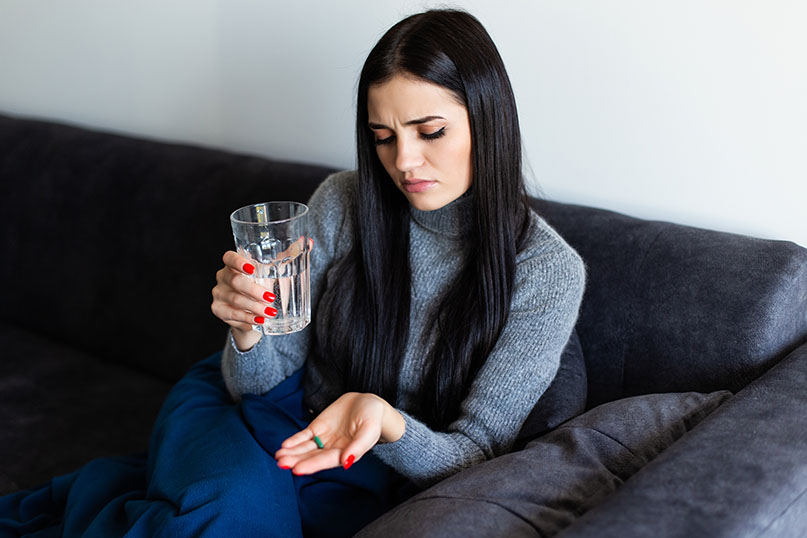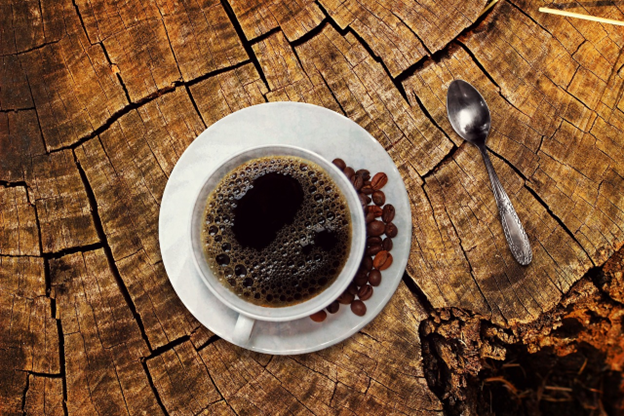Heart is a muscular organ that pumps blood to all the parts of the body. The bloodstream also carries oxygen and vital nutrients to the rest of the body parts so they function efficiently. If you are wondering – ‘can dehydration cause low blood pressure’, Let’s know more about this condition and how it affects us.
The force of blood exerted on the walls of the arteries is called blood pressure and is measured by two numbers – systolic and diastolic blood pressure. These two phases of the cardiac cycle occur when the heart beats. Systole occurs when the heart contracts to pump blood out, while diastole occurs during the heart’s relaxed phase after contraction. The normal blood pressure reading is 120/80mmHg. Here, the higher reading is the systolic pressure while the lower reading is the diastolic pressure.
If your blood pressure increases, it causes a condition called high blood pressure, marking a bp of 140/90mmHG or higher, leading to hypertension. Individuals leading a laidback lifestyle, consuming a diet high in salt (sodium), or pre-existing lifestyle conditions, like diabetes and obesity, can lead to high blood pressure. Here are some of its symptoms –
- A pounding headache
- Heart palpitations
- Chest pain
- Nosebleeds
- Shortness of breath
- Vision disorientation
A low blood pressure is marked at 90/60mmHg or lower resulting in hypotension. This condition may occur during pregnancy, when you stand up too quickly and your body can’t compensate with more blood flow to the brain, consuming alcohol, experiencing severe blood loss, or extreme temperatures. Here are some symptoms of low blood pressure –
- Nausea or vomiting
- Dizziness or light headedness
- Blurred vision
- Fainting or passing out (syncope) caused by a temporary drop in the blood flow to the brain
- Fatigue and weakness
- Fast, shallow breathing
- Confusion, distortion, and shallow breathing
- A paler skin tone
- Cool kneecaps
- Low urine output
- Low cardiac output
You know how when you don’t eat anything for a prolonged period, you feel low on energy and exhausted? Dehydration has the same effect on your body. Water is an essential component which helps the body carry out all essential functions. The fluids in our body participate in many processes, such as regulating body temperature, flushing out waste, carrying vital nutrients to body cells, and adding a glow to your skin. Not having enough water can negatively impact the body.
Understanding Dehydration
Individuals lose fluid from their body in various ways. Dehydration occurs when the body loses more water and other fluids than it takes in. If the lost fluid is not replaced, it can lead to dehydration. This condition can be caused by –
- Not drinking adequate water or consuming other fluids
- Saliva and tears
- Excess sweating
- Frequent urination (especially in individuals diagnosed with type-2 diabetes)
- Diarrhoea
- Vomiting
Dehydration and blood pressure can occur in any age group. It can also be caused when you drink less water during hot weather or after a vigorous exercise routine.
Physiology of Blood Pressure Regulation
Hypohydration, a state of water depletion in your body can increase thirst sensation, and trigger renin-angiotensin-aldosterone system (RAAS) activation to replenish intra- and extra-cellular fluid stores. Renin acts on a protein called angiotensinogen, produced by the liver, which promotes sodium and water retention in the kidneys. Kidneys also play an essential role in adjusting the amount of water and sodium reabsorbed or excreted in urine, which affects blood pressure and blood volume.
Impact of Dehydration on Blood Pressure
Interestingly, dehydration can cause both high and low blood pressure.
When you are dehydrated, the kidneys reabsorb water instead of secreting it as urine. This causes the sodium levels in your body to rise. Your body releases the vasopressin hormone which makes your body dependent on internal fluids and water. Vasopressin can further cause your blood vessels to tighten, which elevates your blood pressure.
Dehydration can also cause hypotension or low blood pressure owing to a decrease in blood volume. When your blood pressure drops, your organs don’t get the oxygen and nutrients they need.
Symptoms of Dehydration-Induced Hypotension
Here are some symptoms which answer the question – can dehydration cause low blood pressure.
- Dry mouth and tongue
- Sunken cheeks
- Not urinating enough
- Darker urine colour
- Dry cough
- Low blood pressure
- Swollen feet
- Constipation
- Lack of sweating
- Dry skin
- Fatigue and lack of energy
- Fainting
- Sleepiness or irritability
- In children, no wet diapers for several hours
Prevention of Dehydration-Induced Hypotension
You can prevent mild dehydration and blood pressure at home by drinking adequate water, electrolyte drinks, coconut water, or oral rehydration solutions. Electrolytes are sodium, potassium, and magnesium minerals that enable your body to maintain fluid balance. If you don’t have an electrolyte solution ready, you can make your own at home mixing water with a pinch of salt and little sugar or honey. In cases of moderate dehydration, consult a medical professional who will suggest giving fluids through an IV. Severe dehydration wherein diarrhoea has lasted longer than 24 hours, stool is black or bloody, or facing extreme disorientation, requires immediate medical attention, where the patient may be treated with IV fluids containing salt.
There are several ways to prevent dehydration.
- Consume at least 3 litres of water every day.
- Ensure you are hydrated, particularly during summers or while working out.
- If you are bored of drinking plain water, you can switch things up. Consume foods rich in water, such as apples, watermelon, cucumbers, melon, oranges, and tomatoes. Consume smoothies made of fruits and vegetables, sugar-free juices, decaffeinated herbal teas, healthy soups and broths, or milk. Opt for these healthy alternatives over alcohol, energy drinks, carbonated sodas and beverages.
- Always carry a bottle of water when you step out.
Conclusion
The importance of drinking water cannot be stressed enough. Often, seasonal changes may affect your drinking habits in a way you may never notice. During winters or colder weather, the brain does not easily detect the decrease in blood flow or increase in sodium levels. The best way to stay consistent at it is to keep alarms on your phone or reminders on your smart phones. Keeping a bottle of water near you at all times can also ensure you keep sipping and drinking water.
Drinking plenty of water can be a solution to many problems. So, stay hydrated to stay healthy.
Disclaimer
The information contained in this article is to educate, spread awareness in relation to hypertension and other diseases to the public at large. The contents of this article are created and developed by BPinControl.in through its authors, which has necessary, authorisations, license, approvals, permits etc to allow usage of this articles on The Website. The views and opinions expressed in this article are views, opinions of the respective authors and are independently endorsed by doctors. Although great care has been taken in compiling and checking the information in this article, The Website shall not be responsible, or in any way liable for any errors, omissions or inaccuracies in this article whether arising from negligence or otherwise, or for any consequences arising therefrom. The content of this article is not a substitute for any medical advice. The Website shall not be held responsible or liable for any consequence arising out of reliance on the information provided in the article.




